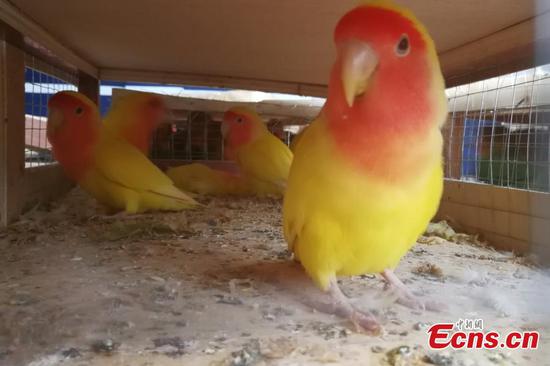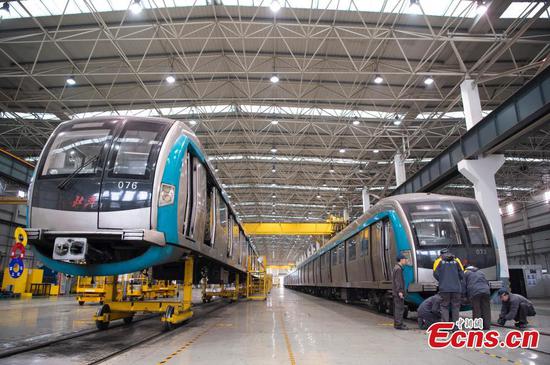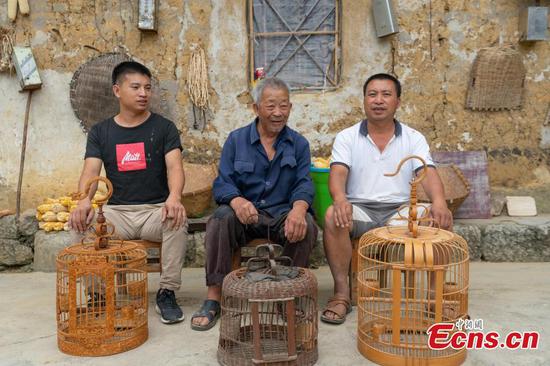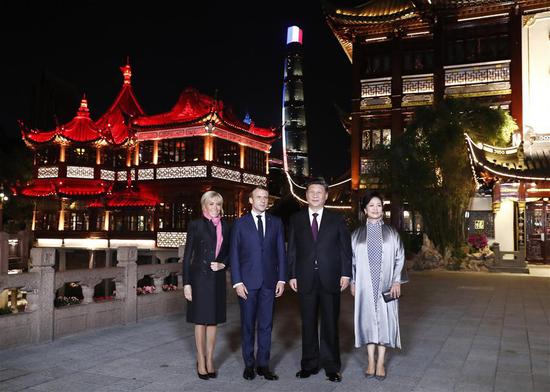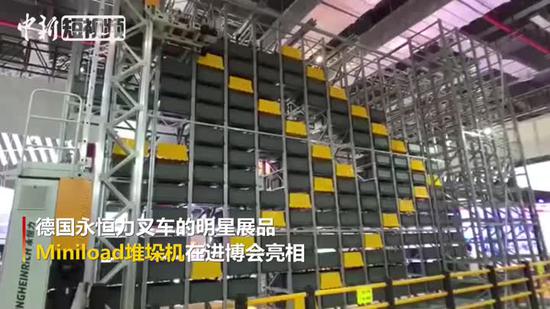Meat in Chinese diet doesn't traditionally occupy a part as prominent as in Western diet, but with rising living standards, China's meat consumption has been rising.
Roasted skin of world-renowned Beijing duck, served with sugar, melts in mouth. Fried, boiled or steamed, dumplings filled with meat can be eaten from breakfast to dinner. Even noodles can be cooked with spicy braised beef, pea and pork sauce, or stir-fried with beef.
While countless foodies rely on meat to tickle their taste buds, Pat Brown is serving up an alternate menu.
The CEO of Impossible Foods said he brought enough plant-based alternatives from the United States to serve about 50,000 hardcore meat lovers at the ongoing second China International Import Expo (CIIE) that opened Tuesday in Shanghai.
"We expect it to be successful in China," he said. "I'm super excited about this as it has been one of our top goals since day one."
The 65-year-old never hides his ambition to eradicate the meat industry, claiming that "using animals to produce food is by far the most destructive technology, way more destructive than fossil fuels."
"Animal agriculture generates more greenhouse gas emissions than the global transport sector. It consumes and pollutes more water than any other industry," he said.
Brown thinks the answer lies in plant-based meat. He established the company in 2011, aiming to make nutritious and delicious meat from plants to satisfy meat lovers while addressing the environmental impact of animal farming.
"The plant-based meat smells, handles, cooks and tastes like ground beef from cows. When you cook it, it produces an explosion of aroma and flavor that never happens with broccoli nor veggie burgers, but with meat," Brown said.
On his maiden trip to the CIIE, the CEO is bullish about the Chinese market, citing China's status as one of the world's biggest consumers of meat.
Brown regards the CIIE as a platform that provides great opportunities for the company's expansion to China.
"We're having meetings with potential partners and government officials during the expo, and we want to launch a plant-based meat industry in the country," he said.
Plant-based alternatives have taken the world by storm. The global plant-based meat market will enjoy an annual compound growth rate of 15 percent to reach 27.9 billion U.S. dollars in 2025, according to consulting firm Markets and Markets.
"The issue we have right now is there's so much demand for our products that we're racing to keep up," Brown said.
At the expo, the global chemical giant and food ingredients leader DuPont has also brought dumplings made of plant-based meat that developed from soy and pea proteins.
"They taste almost the same as real meat dumplings, but compared with animal meat, faux meat can help reduce carbon emissions and water consumption," according to Liu Weibin, general manager for Greater China, Food & Beverage, DuPont Nutrition & Biosciences.
As a leader in the global food and agriculture industry, Cargill told Xinhua at the expo it had invested in three companies since 2017 that engage in alternative protein.
Chinese ham producer Jinzi said last month it is capable of producing plant-based meat with a flavor and nutrients similar to real meat.
By extracting plant proteins from soybeans, peas, wheat and other vegetables and grains, the faux meat is cholesterol-free and contains no animal hormones or antibiotics, according to Ma Xiaozhong, CTO and chief engineer of the company.
Despite these promising signs, some critics have challenged the health benefits of alternative meats.
In response, Brown said soy, the main ingredient of his products, is a very high quality protein, and "our product contains just as much bioavailable iron and protein as meat from cows."
"The plant-based alternative has significant public health benefits in that it uses only a fraction of the land, water and energy and it doesn't contribute to the antibiotics arms race or the well-known risk of antibiotic resistance," Brown added.
The CEO is confident about the bright future of plant-based alternatives. "By 2035, meat will be all plant-based."






























